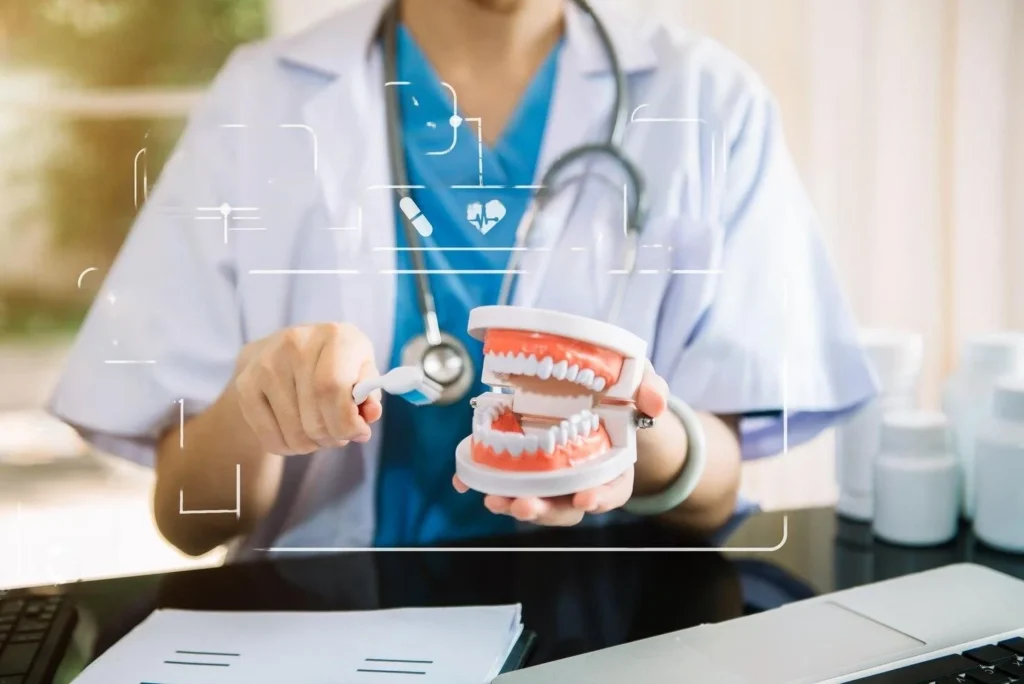Key Takeaways
- The landscape of dental insurance is changing with technological advances and evolving customer expectations.
- Understanding these trends can help individuals and businesses make more informed decisions.
- Focusing on preventive care and holistic health will become increasingly important in dental coverage.
Introduction to Dental Insurance Trends
The dental insurance industry is undergoing significant changes. Technological advancements, customer expectations, and a broader understanding of health and wellness influence these shifts. If you are looking to compare dental plan, staying updated on these latest trends and predictions is essential. A great resource is a tool to compare dental plans and understand what each plan offers.
As consumers become more health-conscious, dental insurance is no longer just about covering the costs of dental procedures. It’s evolving to integrate holistic health measures and preventive care that can make dental insurance more beneficial in the long term. In this article, we delve into the key trends transforming the dental insurance landscape and what they mean for both individuals and businesses looking to choose the right dental plan.
Digital Transformation in Dental Insurance
Technology is revolutionizing how dental insurance is administered. From online portals to mobile apps, digital solutions make it easier for clients to access their accounts and for providers to manage plans efficiently. A report from Forbes suggests that digital tools not only enhance customer experience but also reduce administrative costs. Digital platforms allow for instantaneous policy updates, real-time communication with healthcare providers, and streamlined claims processes.
For example, telehealth services, which enable patients to consult with their dentists virtually, are becoming more common. This saves time and offers a convenient way for patients to receive necessary dental care without leaving their homes. Moreover, AI-powered chatbots can assist patients in navigating their dental plans, answering queries, and booking appointments, thus making the process seamless and user-friendly. Such digital transformations are expected to continue shaping the future of dental insurance, offering greater convenience and efficiency for both providers and policyholders.
The Role of Artificial Intelligence
Dental insurance is seeing a substantial increase in the use of artificial intelligence (AI). AI-powered solutions make fraud detection, risk assessment, and claim processing easier. Due to its ability to increase accuracy and expedite operational procedures, artificial intelligence will play a crucial role in the landscape of the future. Artificial intelligence (AI) provides a more accurate and effective means of managing administrative chores by analyzing enormous volumes of data and spotting trends that human analysts might overlook.
AI, for instance, is capable of quickly analyzing enormous volumes of data to spot patterns and trends that human analysts might overlook. This ensures that claim processing is not only faster but also more accurate, significantly reducing the instances of fraud and errors. Such efficiencies can ultimately translate to cost savings for both providers and consumers. Additionally, AI can assist in diagnosing dental issues by analyzing dental images and X-rays, further enhancing the precision of dental care provided to patients.
Emphasis on Preventive Care
Preventive care is gaining more attention within the dental insurance sphere. Insurers recognize that early intervention and routine checkups can prevent more severe and costly treatments. This shift towards a preventive care model aims to promote long-term oral health and well-being. Future more intrusive treatments can be significantly reduced in cost by early detection and preventive actions.
Preventive services, such as regular cleanings, screenings for oral cancers, and educational programs on maintaining oral hygiene, are becoming more common in dental plans. Insurance companies can lower total healthcare expenses and raise the standard of living for their insured people by emphasizing prevention. Moreover, dietary guidelines and programs for quitting smoking are examples of lifestyle advice that is included in preventative care and can have a big impact on oral health. This comprehensive approach helps in addressing the root causes of oral health issues, thus promoting better overall health and well-being.
Holistic Health and Dental Coverage
There is growing recognition of the link between general health and dental health. Insurance plans are beginning to cover comprehensive health screenings and lifestyle coaching, recognizing that oral health is a crucial component of overall health. The focus is broadening from just dental care to include a more holistic health perspective.
This holistic approach means that dental plans are starting to cover a broader range of services, including nutrition advice, mental health services, and general wellness programs. Such coverage ensures that individuals can maintain their oral health as part of their broader health and wellness goals. For instance, since there is a documented connection between stress and oral health problems like tooth grinding (bruxism), stress management programs can be incorporated into dental plans. By incorporating these broader health services, dental insurance is evolving to support overall health more comprehensively, recognizing the importance of a holistic approach.
What to Expect in the Coming Decade
The next decade promises to bring even more innovations in dental insurance. Emerging technologies, evolving customer expectations, and a holistic approach to health will continue to shape the industry. Whether you are an individual looking for the best plan or a business offering employee benefits, staying informed about these trends will be crucial.
One thing is clear: the future of dental insurance will be more integrated, personalized, and digital. By keeping abreast of these trends, insurers, employers, and consumers can make better decisions that benefit everyone involved. Integrating advanced technologies with personalized care models and preventive strategies will redefine the dental insurance landscape, making dental care more accessible, efficient, and beneficial. The ultimate goal is to create a system that addresses dental issues as they arise and promotes a proactive approach toward maintaining long-term oral health and overall well-being.






